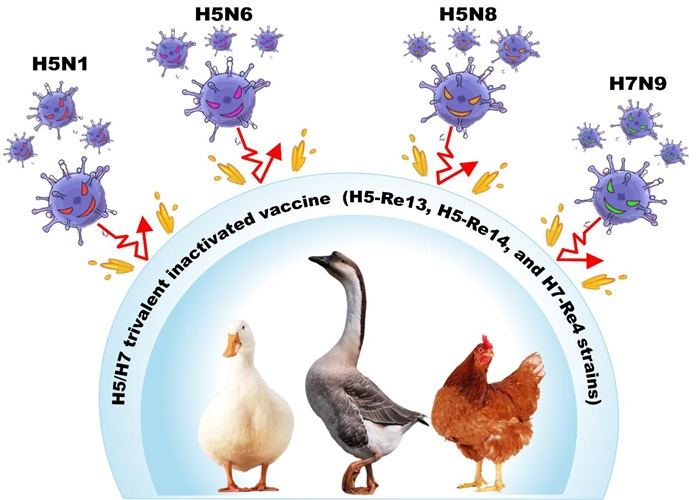In a concerning development, officials have confirmed the discovery of bird flu in a sample of raw milk from California. This finding has significant implications for public health and the dairy industry in the state.
The sample was likely taken as part of routine testing procedures to ensure the safety of food products. State or federal health officials, perhaps in collaboration with agricultural agencies, analyzed the raw milk sample using advanced laboratory techniques. These tests are designed to detect the presence of various pathogens, and in this case, they identified the bird flu virus. The specific strain of bird flu was not immediately disclosed, but any presence of the virus in a consumable product like raw milk is a cause for alarm.
Bird flu can pose serious health risks to humans. While it is primarily a disease that affects birds, there have been cases where the virus has jumped to humans, leading to respiratory illnesses, and in some severe instances, more serious complications. Consuming raw milk contaminated with bird flu could potentially expose individuals to the virus, especially those who drink it without proper pasteurization. The elderly, children, and people with weakened immune systems are particularly vulnerable.
This discovery is also likely to have a major impact on the California dairy industry. There may be concerns among consumers about the safety of raw milk and dairy products in general. Dairy farmers could face a drop in demand for their products, especially raw milk. Additionally, there may be increased regulatory scrutiny and requirements for testing and safety protocols. The industry may need to invest in additional measures to ensure that their products are free from bird flu and other pathogens, which could increase production costs.
Officials are likely to take a series of actions in response. They may issue advisories to the public, warning about the potential risks of consuming raw milk and advising against it until further notice. There could be increased inspections and testing of dairy farms and milk processing facilities. The industry itself may need to review and update its biosecurity measures to prevent the spread of bird flu among their livestock. This could include measures such as better hygiene practices, isolating sick animals, and vaccinating where possible.
In conclusion, the detection of bird flu in a California raw milk sample is a serious matter. It calls for a coordinated effort between officials, the dairy industry, and the public to ensure the safety of food products and protect public health.
Read more
- Smallpox Eradication: An Unforeseen Prelude To The Mpox Outbreak?
- CDC Chief’s Call: Prioritize Health Threats Amid Political Shifts
- The 7 Best Treatment For Thrush For Men


